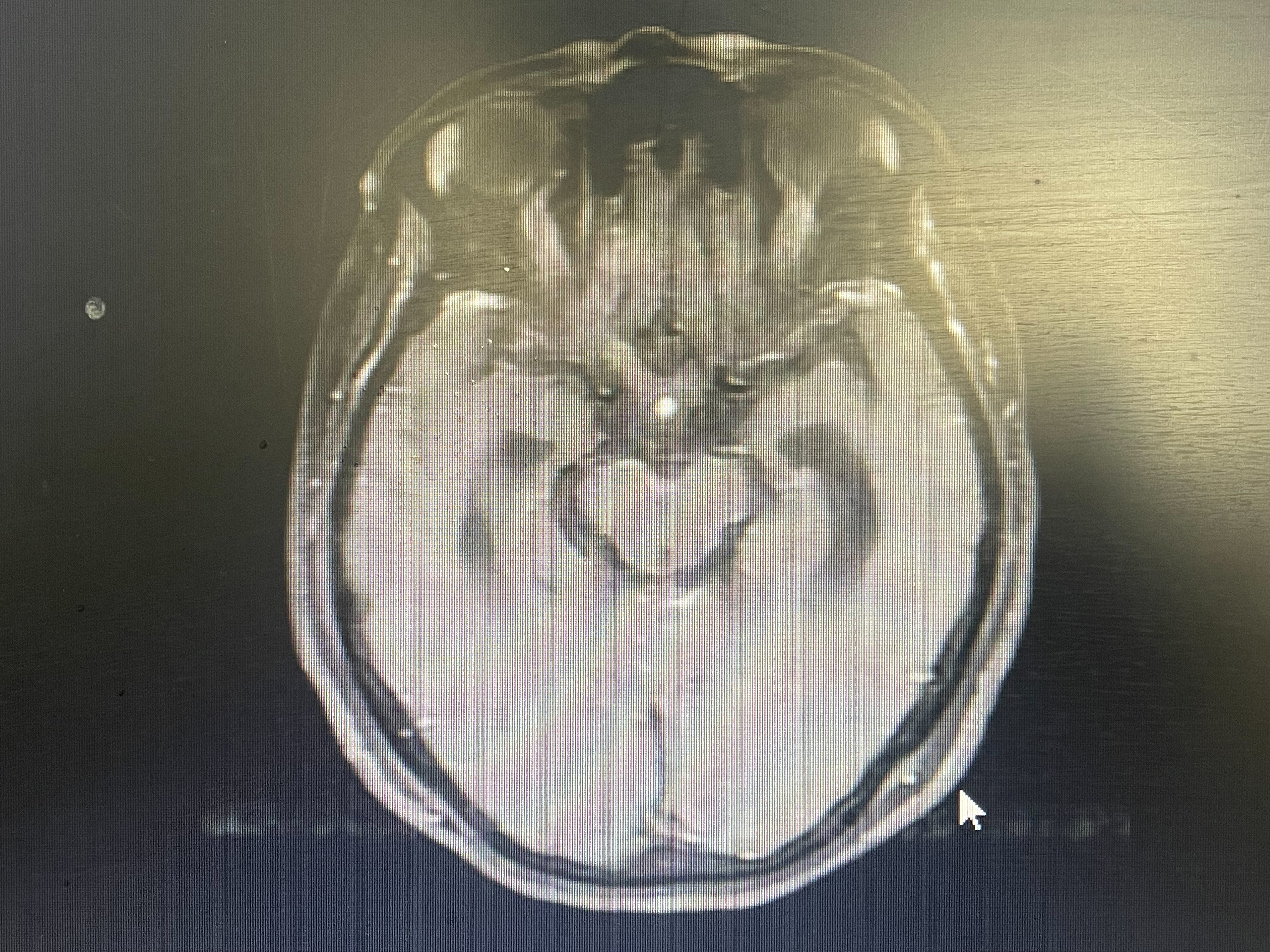Category: Choreas (Non-Huntington's Disease)
Objective: To describe a case with cryptococcal meningitis as a rare cause of adult-onset acute generalized chorea.
Background: Chorea is an abnormal movement characterized as involuntary, purposeless flow-liked movement which can occur from various etiologies. Acute generalized chorea in adult is mostly caused by metabolic or endocrinologic disturbance and adverse effect from medication. Central nervous system (CNS) infection is considered as an uncommon cause of adult-onset acute generalized chorea and cryptococcal meningitis is considered a rarer cause among CNS infection group.
Method: Case report including the detail of clinical features, cerebrospinal fluid (CSF) exam and magnetic resonance imaging (MRI) of brain results.
Results: A 74-year-old woman with history of recent weight loss presented with worsening in confusion and abnormal movement of both arms for one day prior to admission. Twelve days previously, she developed intermittent confusion. Three days previously, she developed abnormal movement of both arms and diffuse headache and became more confused. The physical examination showed normal level of consciousness with some slow response and generalized slow, continuous, flow-liked movement of facial area and both arms. The brain MRI with gadolinium result showed diffuse leptomeningeal enhancement with communicating hydrocephalus [Figure 1]. The CSF exam result revealed lymphocytic pleocytosis, high protein, very low sugar level and positive cryptococcal antigen titer of 1:100. She was diagnosed with cryptococcal meningitis with acute generalized chorea and then was treated with intravenous amphotericin B, oral flucytosine and oral haloperidol. The chorea was gone in two days after starting treatment. This patient was awake in the day of discharge with mildly slowly responsive state.
Conclusion: Although cryptococcal meningitis is a rare cause of generalized chorea, it should be highly suspected in a patient with acute generalized chorea with a clinical setting compatible with meningitis. Early detection and management of this condition could lead to a better neurological outcome.
Figure 1
References: Buell KG, Vickers BP, Bloch KC, Brown AE, Hedera P, Jermakowicz W, Konrad PE, Wesley Ely E. Cryptococcal Meningitis Causing Refractory Hemichorea-Hemiballismus Treated With Pallidotomy. Cureus. 2021 Jul 19;13(7):e16493. doi: 10.7759/cureus.16493. PMID: 34430108; PMCID: PMC8372680.
To cite this abstract in AMA style:
C. Wantaneeyawong, C. Teekaput, K. Thiankhaw. Cryptococcal meningitis as a rare cause of acute generalized chorea: a report of an interesting case [abstract]. Mov Disord. 2024; 39 (suppl 1). https://www.mdsabstracts.org/abstract/cryptococcal-meningitis-as-a-rare-cause-of-acute-generalized-chorea-a-report-of-an-interesting-case/. Accessed February 14, 2026.« Back to 2024 International Congress
MDS Abstracts - https://www.mdsabstracts.org/abstract/cryptococcal-meningitis-as-a-rare-cause-of-acute-generalized-chorea-a-report-of-an-interesting-case/

